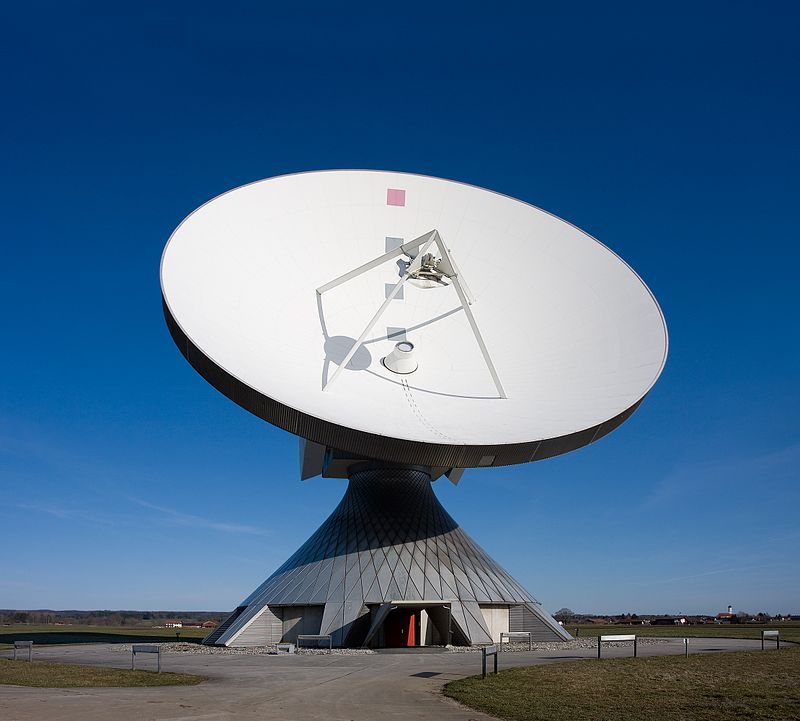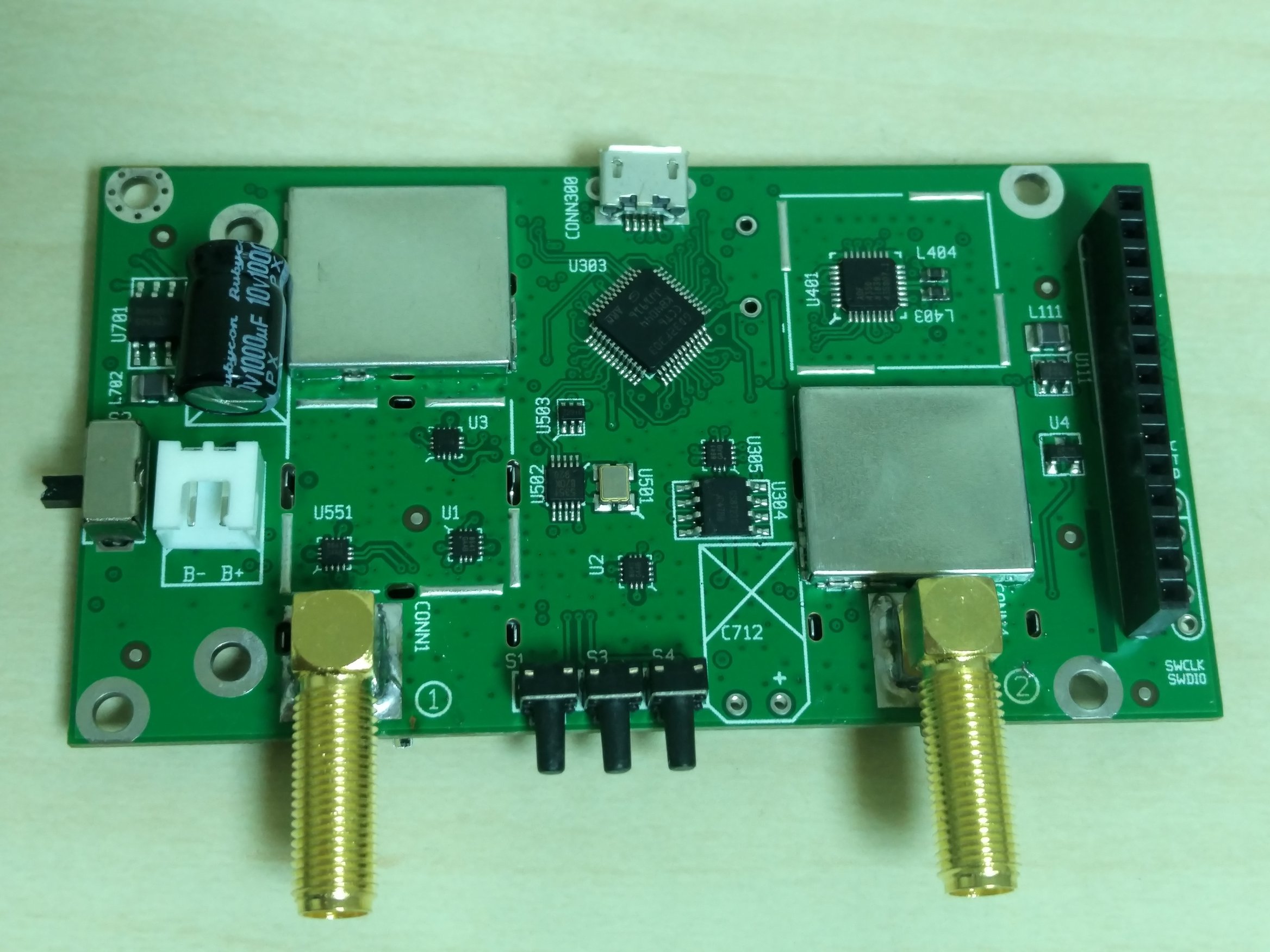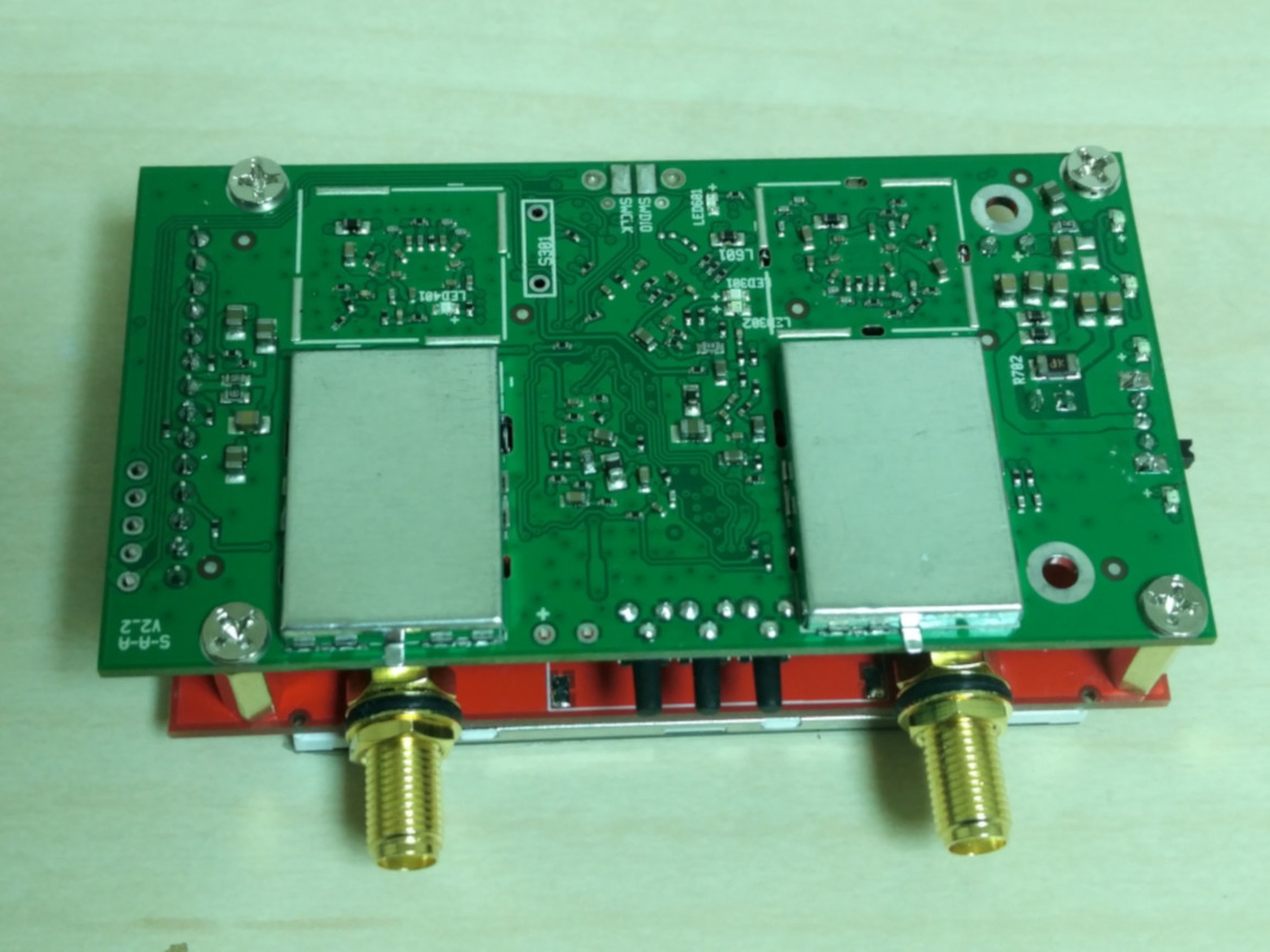Which vector network analyzer should we buy?
-
@NeverDie If they can't even get the screen printing right then how much attntion to detail does the whole item have?
I guess that you need to design some antennas for 915MHz(?) so you need something that can give you data for that.
There is modelling software out there that can do this type of thing and some free online pages offer antenna design analysis.
Another option might be to get in touch with a local amateur radio club. They often have equipment and amateur/professional RF people who might give you a better way to go.
-
@NeverDie If they can't even get the screen printing right then how much attntion to detail does the whole item have?
I guess that you need to design some antennas for 915MHz(?) so you need something that can give you data for that.
There is modelling software out there that can do this type of thing and some free online pages offer antenna design analysis.
Another option might be to get in touch with a local amateur radio club. They often have equipment and amateur/professional RF people who might give you a better way to go.
@skywatch I would share your skepticism, except the guy with the swiss accent tried it and seemed to really like it. It's possible that maybe the P100 is a bad clone of the one he had though. I don't fancy shipping something back to China if it is, so that's why I was leaning toward buying it on amazon, which has good purchase protection and easy returns.
Regardless, this would be a learning process for sure. The goal would be to optimize whatever antenna system I have so as to get the absolute most that I can out of it. You're right that I could simply try to buy pre-made antennas, and then run open loop and hope it's all working as it should with no way to check it, but I'd like to have a tool to crosscheck the setup and help tune it if it's not optimal. With these lower priced VNA's flooding the market, it seems that a lot of people are buying them and posting "VNA's for idiots" videos on how to do it, and so maybe it's easier to learn now than it was even just a few years ago.
@skywatch said in Which vector network analyzer should we buy?:
Another option might be to get in touch with a local amateur radio club. They often have equipment and amateur/professional RF people who might give you a better way to go.
Good suggestion. Hopefully some googling will tell me if there is such a group that's local.
@mfalkvidd said in Which vector network analyzer should we buy?:
@NeverDie nice summary. Have you seen https://www.reddit.com/r/amateurradio/wiki/nanovna ?
I hadn't, so thank you very much for pointing that out. That link is directly on point.
With the risk of waiting too long for "the next thing", I'm considering Nanovna 2.0 which is mentioned on that wiki.
I agree with you. It said version 2 was due in January. If it costs 1/3 to 1/4 the price of the next best alternative, as that link implies, then I don't mind waiting a bit longer. What's hard for me to assess is whether it has equivalent functionality, or whether paying more for the P100 also buys me something I can't get with nanoVNA version 2. If anyone who knows this stuff can comment on that, it would be great.
-
@NeverDie If they can't even get the screen printing right then how much attntion to detail does the whole item have?
I guess that you need to design some antennas for 915MHz(?) so you need something that can give you data for that.
There is modelling software out there that can do this type of thing and some free online pages offer antenna design analysis.
Another option might be to get in touch with a local amateur radio club. They often have equipment and amateur/professional RF people who might give you a better way to go.
@skywatch The nanoVNA was reviewed by a few US Hams, some posted on YouTube, they drew favourable comparison with commercial gear costing 10x, which is pretty amazing.
Whether the "Anal" version @NeverDie is considering has been checked out might be worth a query via a local Ham. There will be a tribander on a rotator on a mast somewhere near...
Radio hams have their own "network" of specialist interests within the ARRL, so contacting any one could yield useful information or advice from others. -
@NeverDie @zboblamont For educational purposes then I guess it will be fine, even if it is a 'no name' product.
Joking aside, I just want to help you avoid the mistakes I have made. I can't count the amount of things like this that have gone to the recycling centre and replaced with better versions.
As for antenna analysis, this really has to be done with the antenna in a fixed location from which it will never move for the most accurate results. Is this feasible with your plans? Any movement will change the conditions and especially local reflections etc. - Also, I suspect that the difference in antenna SWR for the sort of power levels IoT devices typically use is generally a moot point. We are not sending 1000W along a 10M feeder and so losses and reflections on the line are going to be minimal.
A 1/4 wave dipole will have elements approx 8.2cm at 915MHz. So you will need to trim them very carefully. I guess a stacked colinear would be a nice project and I would be interested if you ever did that! You can make it out of co-ax, check out ADSB antennas as they are very close to your desired freq at 1090MHz.
For optimum results you really can't beat one of these...But maybe WAF is a consideration as well! ;)

Your best bet might be to actually take the radio amatuer exam course at a local college. You don't need to do the exam at the end if you don't want to, but you will learn a lot about antenna theory and practical implemation. The lecturer will surely help you out and they might have equipment you can use for free.
-
@skywatch said in Which vector network analyzer should we buy?:
Your best bet might be to actually take the radio amatuer exam course at a local college. You don't need to do the exam at the end if you don't want to, but you will learn a lot about antenna theory and practical implemation. The lecturer will surely help you out and they might have equipment you can use for free.
I did exactly this (and passed the exam). Unfortunately, I did not learn as much (of the things I hoped to learn) as I expected.
Most HAMs focus on (what I would call) low frequencies. The equipment, priorities and trade-offs are completely different. For HAMs, "High frequency" is 3-30MHz. When 1/4 wavelength is measured in multiple meters (10's of feet for those suffering from imperial rule), your problems are very different from the frequencies we use.
Also, the course focused a lot on passing the exam (naturally), and passing an exam does not have much to do with learning anything that is useful in practice. Not sure if this is different around the world, but here in Sweden, the exam questions are primarily around safety and regulations. Knowing those things is great, but does not help me when tuning an antenna.
I guess what you can learn also depends a lot on what areas the lecturers are interested in, and what areas the other people taking the course are interested in.
-
@skywatch said in Which vector network analyzer should we buy?:
Your best bet might be to actually take the radio amatuer exam course at a local college. You don't need to do the exam at the end if you don't want to, but you will learn a lot about antenna theory and practical implemation. The lecturer will surely help you out and they might have equipment you can use for free.
I did exactly this (and passed the exam). Unfortunately, I did not learn as much (of the things I hoped to learn) as I expected.
Most HAMs focus on (what I would call) low frequencies. The equipment, priorities and trade-offs are completely different. For HAMs, "High frequency" is 3-30MHz. When 1/4 wavelength is measured in multiple meters (10's of feet for those suffering from imperial rule), your problems are very different from the frequencies we use.
Also, the course focused a lot on passing the exam (naturally), and passing an exam does not have much to do with learning anything that is useful in practice. Not sure if this is different around the world, but here in Sweden, the exam questions are primarily around safety and regulations. Knowing those things is great, but does not help me when tuning an antenna.
I guess what you can learn also depends a lot on what areas the lecturers are interested in, and what areas the other people taking the course are interested in.
@mfalkvidd Great to hear (in a way).....
I did mine when I was 17 and that was a looooong time ago! - Back then (in UK) we had to take 2 papers. One was safety and legal, the other was operating and technical knowldege. Maybe things have changed. But then to even operate on HF you were required to learn morse code, so nearly all who passed started off on 144/430MHz bands. I know that morse is no longer required here for HF and I can use that if I wanted to now.
I can't think of a better way to meet people who are interested in RF and who probably work/worked with such things. The radio amateurs exam got me into jobs when I was young, at one point working for Marconi Space and Defence Systems on equipment using from 3GHz-40GHz. That was unbelieveably hight frequencies for me! But in this range antenna theory takes you into the black magic of smith charts and those are not for the undedicated!
-
@skywatch That giant wok is a bit chunky for portable applications... :laughing:
Agreed that a lot of hams stay on the 1.8-30MHz bands, but there are many on the DIY side setting up receive antennae even outside the licensed bands limit (1296 MHz?) ;), hence I guess their interest in these devices, and potential advice...
Gone are my National Field Day experiences of translating bird chirping and car squeaks at the break of dawn... :flushed: -
@skywatch I would share your skepticism, except the guy with the swiss accent tried it and seemed to really like it. It's possible that maybe the P100 is a bad clone of the one he had though. I don't fancy shipping something back to China if it is, so that's why I was leaning toward buying it on amazon, which has good purchase protection and easy returns.
Regardless, this would be a learning process for sure. The goal would be to optimize whatever antenna system I have so as to get the absolute most that I can out of it. You're right that I could simply try to buy pre-made antennas, and then run open loop and hope it's all working as it should with no way to check it, but I'd like to have a tool to crosscheck the setup and help tune it if it's not optimal. With these lower priced VNA's flooding the market, it seems that a lot of people are buying them and posting "VNA's for idiots" videos on how to do it, and so maybe it's easier to learn now than it was even just a few years ago.
@skywatch said in Which vector network analyzer should we buy?:
Another option might be to get in touch with a local amateur radio club. They often have equipment and amateur/professional RF people who might give you a better way to go.
Good suggestion. Hopefully some googling will tell me if there is such a group that's local.
@mfalkvidd said in Which vector network analyzer should we buy?:
@NeverDie nice summary. Have you seen https://www.reddit.com/r/amateurradio/wiki/nanovna ?
I hadn't, so thank you very much for pointing that out. That link is directly on point.
With the risk of waiting too long for "the next thing", I'm considering Nanovna 2.0 which is mentioned on that wiki.
I agree with you. It said version 2 was due in January. If it costs 1/3 to 1/4 the price of the next best alternative, as that link implies, then I don't mind waiting a bit longer. What's hard for me to assess is whether it has equivalent functionality, or whether paying more for the P100 also buys me something I can't get with nanoVNA version 2. If anyone who knows this stuff can comment on that, it would be great.
@NeverDie said in Which vector network analyzer should we buy?:
It said version 2 was due in January.
It looks to me like it's available now. After where it mentions the 2.0, there's a link where it says 'authorized dealer.'
That link goes here: https://www.tindie.com/products/hcxqsgroup/nanovna-v2/
And it says you can buy it now for a little under $60 US.
I don't know anything else about it, but I'm also considering getting one, now that I've read about it in this thread. I like the idea.
-
@NeverDie said in Which vector network analyzer should we buy?:
It said version 2 was due in January.
It looks to me like it's available now. After where it mentions the 2.0, there's a link where it says 'authorized dealer.'
That link goes here: https://www.tindie.com/products/hcxqsgroup/nanovna-v2/
And it says you can buy it now for a little under $60 US.
I don't know anything else about it, but I'm also considering getting one, now that I've read about it in this thread. I like the idea.
-
There are also some interesting projects to follow:
-
@NeverDie said in Which vector network analyzer should we buy?:
It said version 2 was due in January.
It looks to me like it's available now. After where it mentions the 2.0, there's a link where it says 'authorized dealer.'
That link goes here: https://www.tindie.com/products/hcxqsgroup/nanovna-v2/
And it says you can buy it now for a little under $60 US.
I don't know anything else about it, but I'm also considering getting one, now that I've read about it in this thread. I like the idea.
@ejlane I think these may just be prototypes, not the final release. I can't say for sure, but doesn't it look as though it's missing some of the shielding cans?

Perhaps this is why: no pcb routed cutouts for the cans to anchor them down (or merely just align?) to the board, like the ones that are mounted have .
Anyone else agree?

-
@ejlane I think these may just be prototypes, not the final release. I can't say for sure, but doesn't it look as though it's missing some of the shielding cans?

Perhaps this is why: no pcb routed cutouts for the cans to anchor them down (or merely just align?) to the board, like the ones that are mounted have .
Anyone else agree?

@NeverDie Maybe they anticipated the need for the shielding, but upon testing decided to reduce the costs and leave them out as performance was adequate without them possibly due to the metal casing.
Also C712 is missing. Likely a 1000uF as per the other electrolytic shown. If it is a genuine Rubycon then I am impressed a bit more, but with so many fake electrolytics out there now it's difficult to tell from a photo.
It will be interesting to see the reviews of the new unit though.....
-
@NeverDie Maybe they anticipated the need for the shielding, but upon testing decided to reduce the costs and leave them out as performance was adequate without them possibly due to the metal casing.
Also C712 is missing. Likely a 1000uF as per the other electrolytic shown. If it is a genuine Rubycon then I am impressed a bit more, but with so many fake electrolytics out there now it's difficult to tell from a photo.
It will be interesting to see the reviews of the new unit though.....
@skywatch said in Which vector network analyzer should we buy?:
It will be interesting to see the reviews of the new unit though.....
Big discussion was at https://groups.io/g/nanovna-users/topic/first_pcb_pictures_of_the_v2/68761814. Now it seem continued to the https://groups.io/g/nanovna-users/topic/v2_design/71480430. These topics also explain why some shielding wasn't installed.
Please note, there is also the NanoVNA2 by edy555, but the name has been taken.
